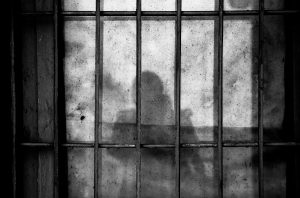The church’s responsibility to the children of the incarcerated
Ministry to the Fatherless and Motherless
Introduction
As the Director of Forsyth Jail and Prison Ministries’ Transition to Work Program in Winston Salem I was responsible for providing holistic support to adult men who were returning to society after serving a term of incarceration. These areas of support included assistance in acquiring employment, education, housing, transportation, mentorship, and psychological and addiction recovery services. As the current Director of Community Passageways’ Community Safety Initiative I provide support services to youth and families in Seattle that have been adversely affected by the criminal justice system and gun violence.
My work with Forsyth Jail and Prison Ministries (FJPM) and Community Passageways (CP) has exposed me to countless children who have had their mental, emotional, and/or physical being damaged by losing a parent for a period of time due to the incarceration of that parent. Currently, there are countless children suffering as a result of having a parent or both parents serving periods of incarceration in the United States criminal justice system. Unfortunately, in many circumstances, troubled young adults have emerged from the shells of children who were detrimentally affected by the absence of an incarcerated parent or parents, resulting in a cycle of generational poverty, marginalization, and involvement in the American criminal justice system. “The percentage of women entering U.S. prisons in the last twenty years has increased almost 400 percent, while male incarceration rates increased at less than half that rate. The captured are poor women of color, mostly African Americans, the majority of whom are mothers. The incarceration of African American women in state prisons rose 828 percent between 1986 and 1991, and it continues to climb.”[1] The children of these incarcerated mothers face monumental problems as they attempt to navigate life without the central figure in a child’s upbringing. Much has been said about fatherless children affected by the mass incarceration of men, however, the impact of incarcerating mother’s may be more destructive to children.[2]
tamirlan-maratov-sDgHXXRk4zo-unsplash
The Problem
From its establishment the black church has been a rallying point where community members mobilize and strategize to counter the latest threat to the community and its members. The American criminal justice system is the latest threat to the African American community thus I conclude that the church has an obligation to the children and families of the incarcerated and must do a better job of serving the needs of these members of society. I have come to this conclusion through careful study of Jesus’ ministry. Jesus ministered to the people while working to change the religious and governmental systems that perpetuated and fostered practices of injustice that marginalized, disenfranchised, and took advantage of certain members of society. As disciples of Christ, it is imperative that we continue the work of Jesus through efforts designed to provide hope, healing, and restoration to those in need while dismantling systems that cause harm.
ye-jinghan-T5roX1jajzU-unsplash
The Project
To more effectively address the harmful impacts that mass incarceration has on the African American community I developed a project titled: Reshaping Incarceration: The church’s role and responsibility to the incarcerated persons and their families. This project examines the church’s responsibility to the children and families of the incarcerated, and discusses how the church should engage unjust societal systems that perpetuate repetitive cycles of incarceration and generational crime and impoverishment in certain communities. This project will require the church to take an analytical look at how they are currently doing ministry with this population to discern what ministry methods can be employed to assist reentry, hold returning citizens accountable for family/community contributions, and reduce recidivism. This project will also work to establish programs and ministry efforts that can be created to serve returning citizens (ex-offenders) and the children of the incarcerated long-term.
This project examined current methods of ministering to the incarcerated persons and their communities to determine if existing methods are resulting in the desired goals. (See Appendix A) This project’s goal was to identify areas where it is necessary to apply adjustments to methods of doing prison ministry to more adequately serve the holistic needs of the inmates and the children left behind due to incarceration. This project focused on the church’s responsibility to the families of the incarcerated by examining, critiquing, and adjusting the methods of ministry that are currently being utilized to serve the incarcerated.
This project focuses on four primary questions.
- What is the church’s responsibility to the children and families of the incarcerated?
- How should the church engage unjust societal systems that perpetuate repetitive cycles of incarceration and generational crime and impoverishment in certain communities?
- What are ministry methods that can be employed to assist reentry, hold returning citizens accountable for family/community contributions, and reduce recidivism?
- What are some programs/ministry efforts that can be created to serve the children of the incarcerated long-term?
To address these concerns, I have created a twelve-week workshop series designed to address issues of culture, faith, identity, history, and purpose. This workshop is designed for young men and women between the ages of 8-21 who have incarcerated parents, and their remaining caregivers. The workshop will explore the effects of incarceration on the youth and their household and teach young people how to think through common issues affecting their lives by using different lenses and perspectives which we will introduce to them and the remaining caregiver. The youth and caregiver will be provided with wrap around support services like individual and family counseling, mentorship, educational support, economic education and financial support, and exposure to travel and the arts. For each of the first 11 weeks the group will examine a different topic of discussion and on the 12th week we will hold a celebratory session. At this session, the youth will be given certificates and gifts to symbolize a rite of passage and the completion of the program. The caregivers will also be given a gift to symbolize their participation and completion of the program.
During the 12-week program attended by the family members of the incarcerated there will also be a weekly class to educate the church members about the trauma faced by the families of the incarcerated, introduce long term ways to support these families, and identify ways in which the congregation can participate in efforts aimed at criminal justice reform. These trainings will challenge traditional ways of participating in ministry to inmates and their families, with a specific focus on the participants understanding of their reason for doing prison ministry and the impact that they hope to have in their ministry efforts. This program will be an introduction to a lasting relationship between children of incarcerated parents and healthy church prison ministries.
[1] (Golden, War on the Family: Mothers in Prison and the Families They Leave Behind 2005) Pg. 3
[2] (Arditti, Parental Incarceration and the Family Psychological and Social Effects of Imprisonment on Children, Parents, and Caregivers 2012) Pg. 59
Appendix A
The Research Process
For this project I employed three different research methodologies. I began by interviewing the chaplains who were on staff with FJPM. I interviewed three chaplains, including the senior chaplain who has been part of the ministry for over 35 years. I also interviewed community volunteers who come into the jail and prison to participate in the different ministries that are offered to the inmates. I interviewed 25 volunteers who participate on 5 different ministries to get a variety of feedback from different denominations, ethnicities, genders, and ages. Finally, I interviewed the inmates to get feedback on how they received the ministries and if they felt that they were effective in helping them change harmful behaviors and if they were positively impacting the lives of their children. Aside from the interviews that I conducted I also observed the various ministries and took extensive notes. My research on the organization’s history was done by interviewing the senior chaplain to get a complete picture of the organization’s founding and evolution into its current organizational standing. I did further research by looking at the history of the community around the prison congregation and interviewing congregational leaders who have participated in prison ministry with FJPM for some time. After researching local prison ministries, I looked at how other congregations were doing prison ministry around the nation to gauge the impact and effectiveness of current methods of engagement with inmates, inmate families, and returning citizens. I also surveyed local congregations and CP staff to determine their motivations for doing this work and the goals that they hoped to achieve in this work. I employed small group discernment, as well as congregational surveys and conversations, to determine a way to focus the energies and efforts of local church volunteers in a direction that empowers returning citizens and their families in their efforts to overcome systems, thought processes, and behaviors that lead to detrimental actions, incarceration, and recidivism.
I studied the relationship between the local church and incarcerated individuals and their families while researching current methods of ministering to the incarcerated and their families in King county to determine if there is a more compassionate/effective way of welcoming this population into loving fellowship. My research has caused me to challenge traditional methods to discover those methods that are no longer effective and create new models that are more in line with a Christ centered model that invites the incarcerated and their families to come as they are while empowering them to become thriving and contributing disciples of Christ, instead of people who become dependent on the charity of church congregations and other social service institutions.
I employed several different methods of focused research to collect data to determine where change should take place in our current ministry efforts and what practices should be implemented in order to accomplish ministry outcomes that most closely resemble the ministry focus and efforts of Jesus the Christ. These methods of research included:
- Observations of volunteers, inmates, family members of inmates, prison staff, and CP personnel. I observed practices and methods of ministry currently being employed in bible studies, yokefellow gatherings, ministry service events, donation and fundraising drives, worship services, and other areas of ministry.
- Conversations and interviews with volunteers, inmates, family members of inmates, prison staff, and CP personnel. The conversations were “Transformative” conversations where I began by framing an invitation.
- For those who chose to participate, we discussed the ability, and the necessity of growth and development of the prison ministry services (framing choices and identifying hurdles that might hinder actions to change ministry methods so that the ministry efforts might be most impactful)
These interviews and conversations revolved around the following questions:
- What is the story that you are telling about this ministry/work?
- What is your role in the story that you are telling about this ministry/work?
- What is the commitment you hold that brought you into this ministry/work?
- What are the gifts you hold that have been brought fully into this world?
- What is your contribution to the very thing that you complain about?
- What is the price you are willing to pay to ensure the thing you complain about is solved?
- Who serves/is served by this ministry/work?
Finally, I employed Asset Mapping surveys to take an inventory of the various gifts, talents, & abilities present in the community to learn how existing community gifts, that may not have been identified, can be best utilized to meet the needs of the community we serve. I mapped the community assets of:
- Inmates
- Inmate family members
- Volunteers
- Local church congregations represented by the volunteers.
- Community organizations
- CP staff
- King County Correctional Facility staff







